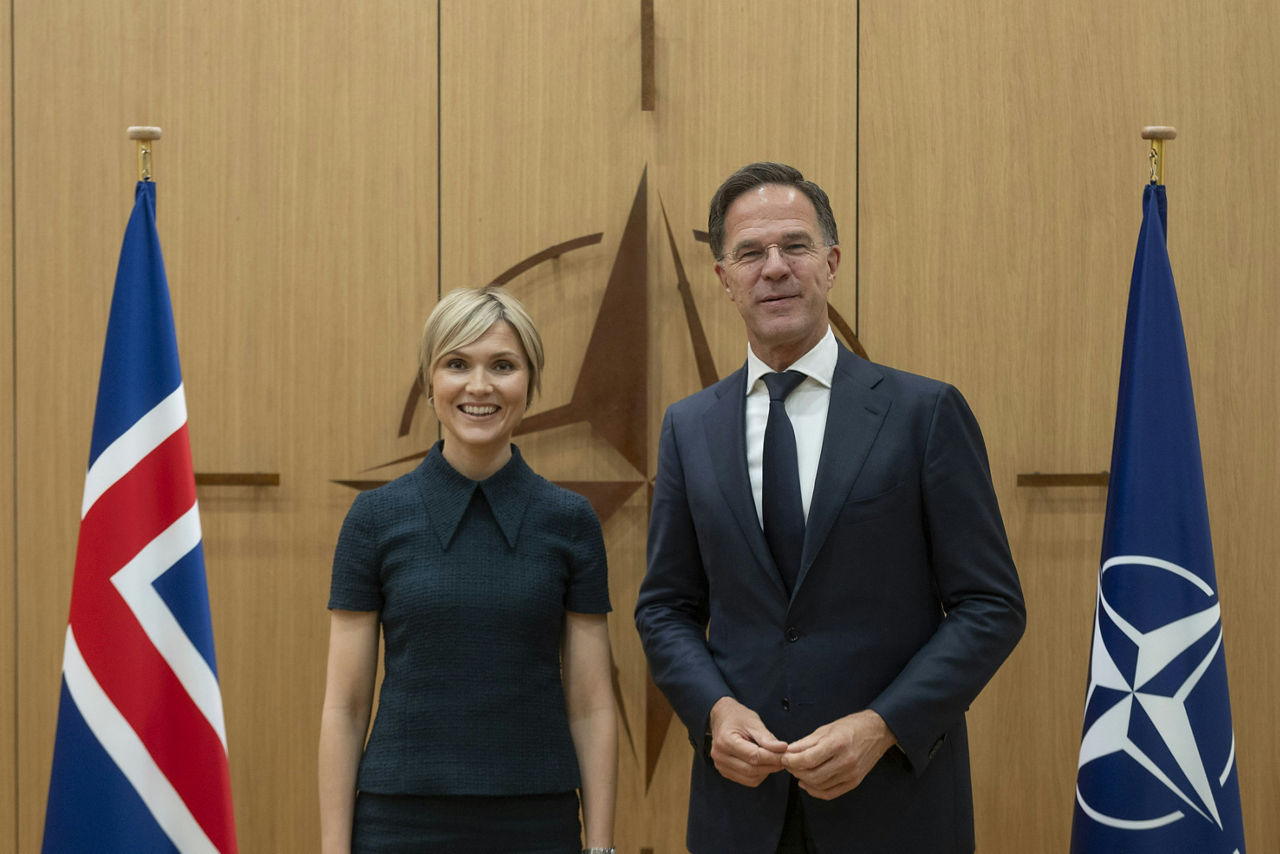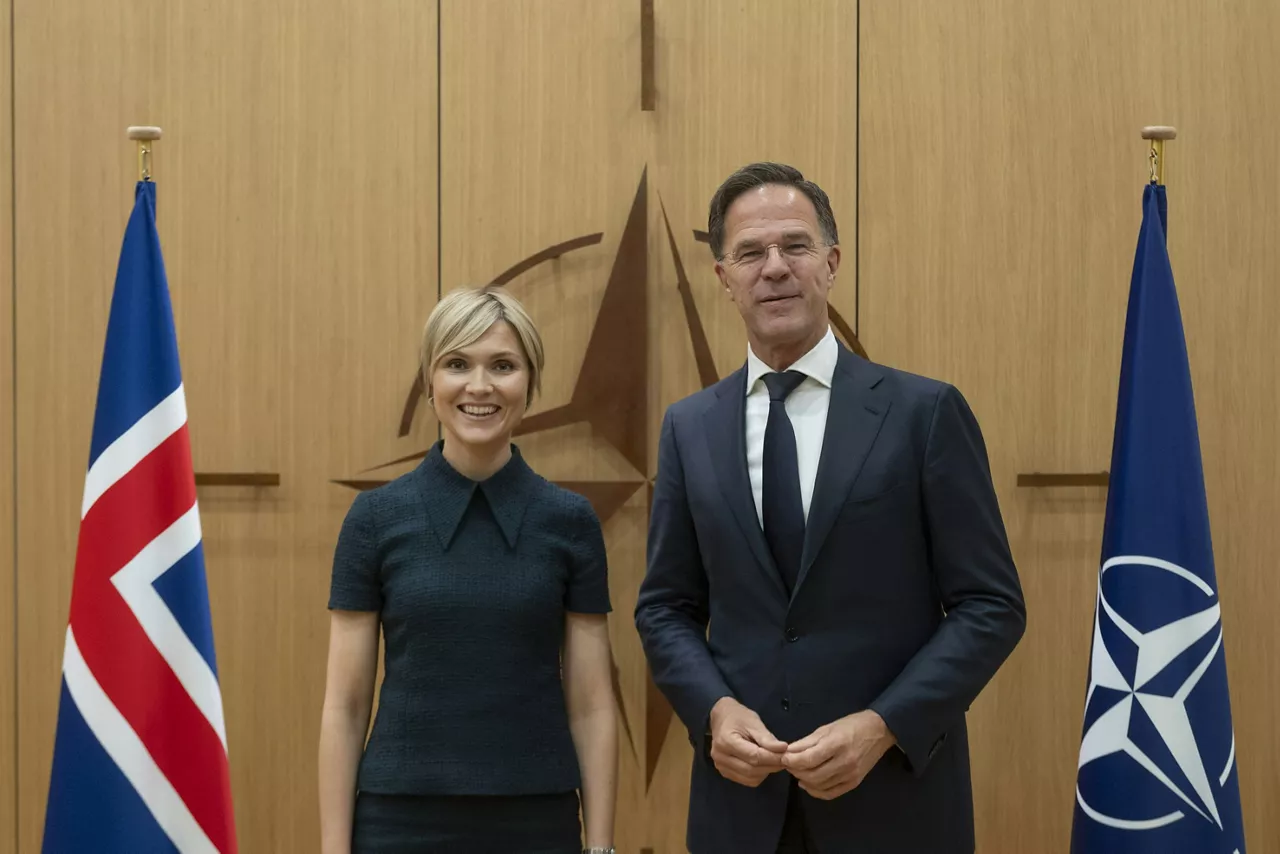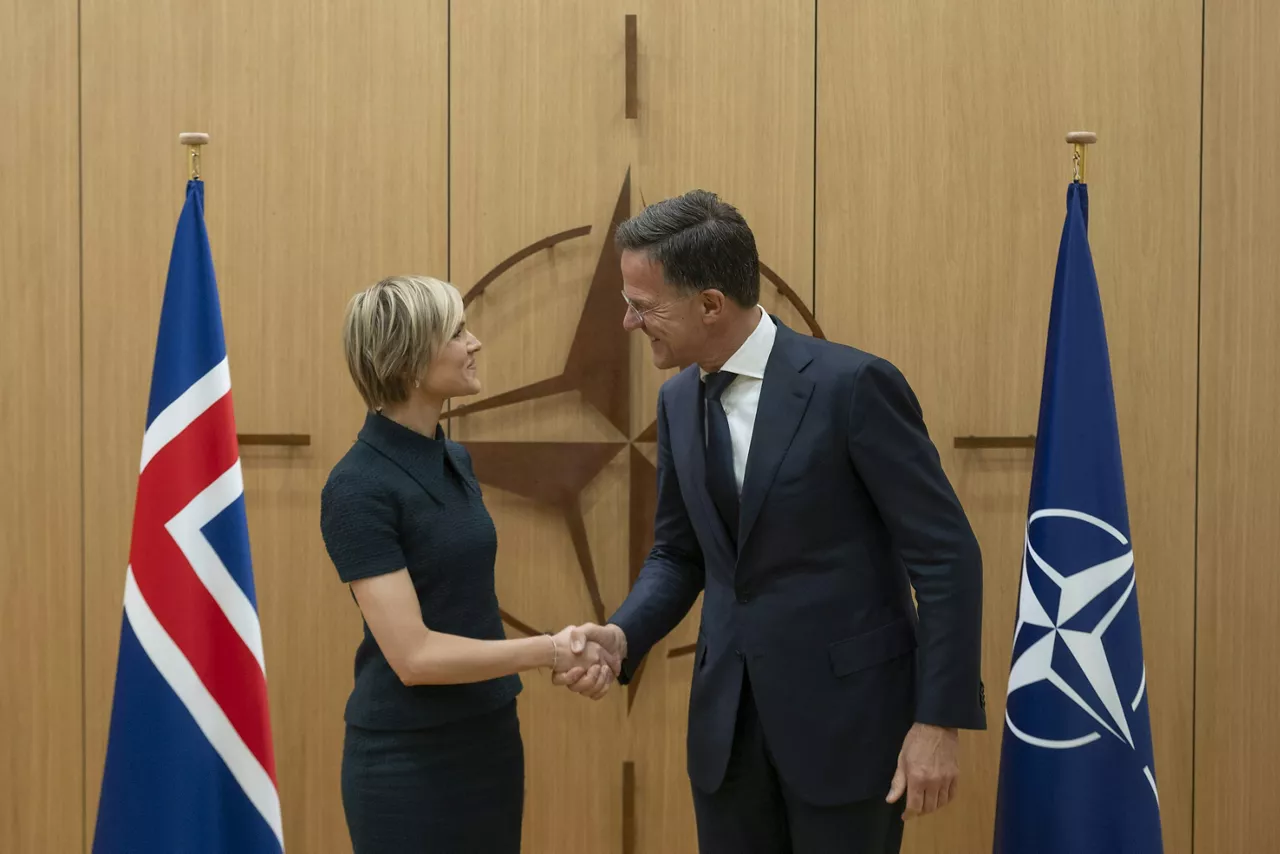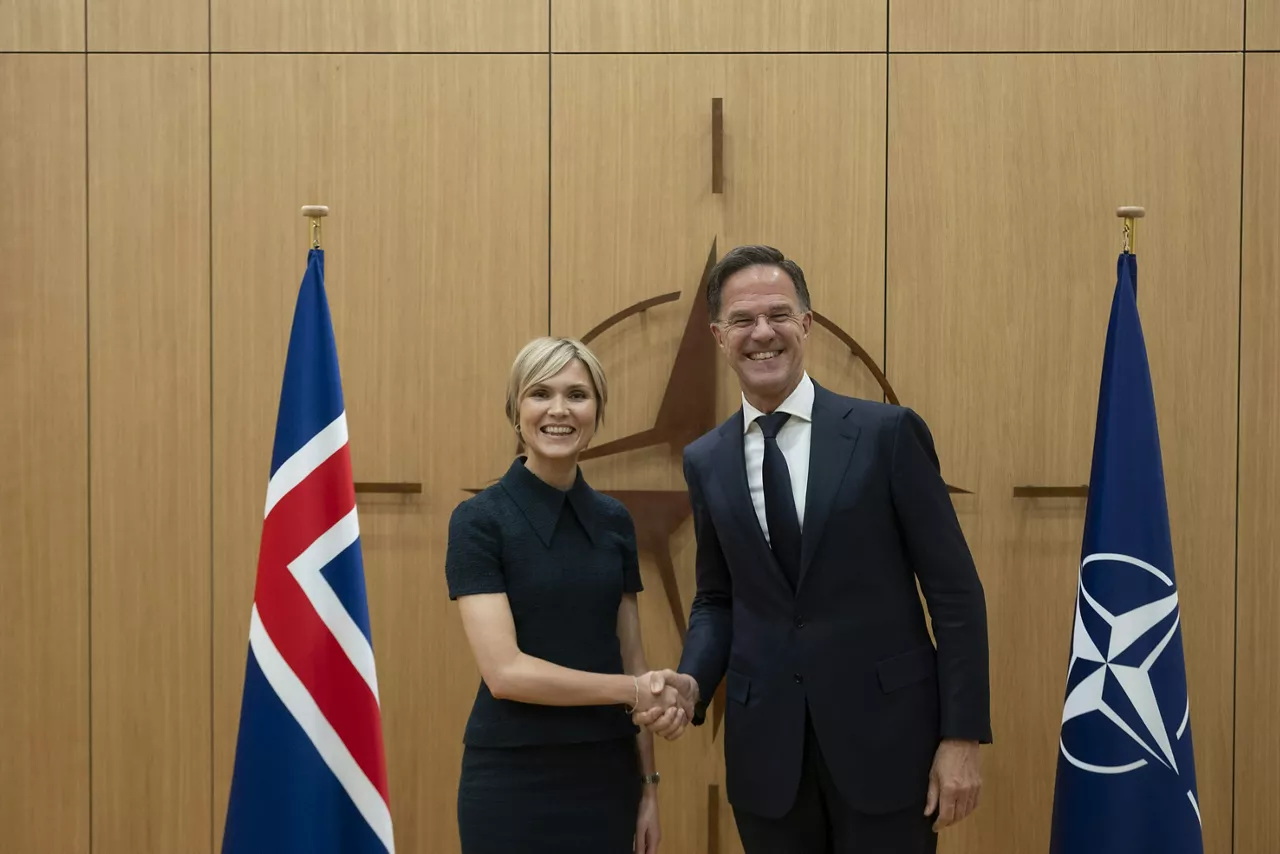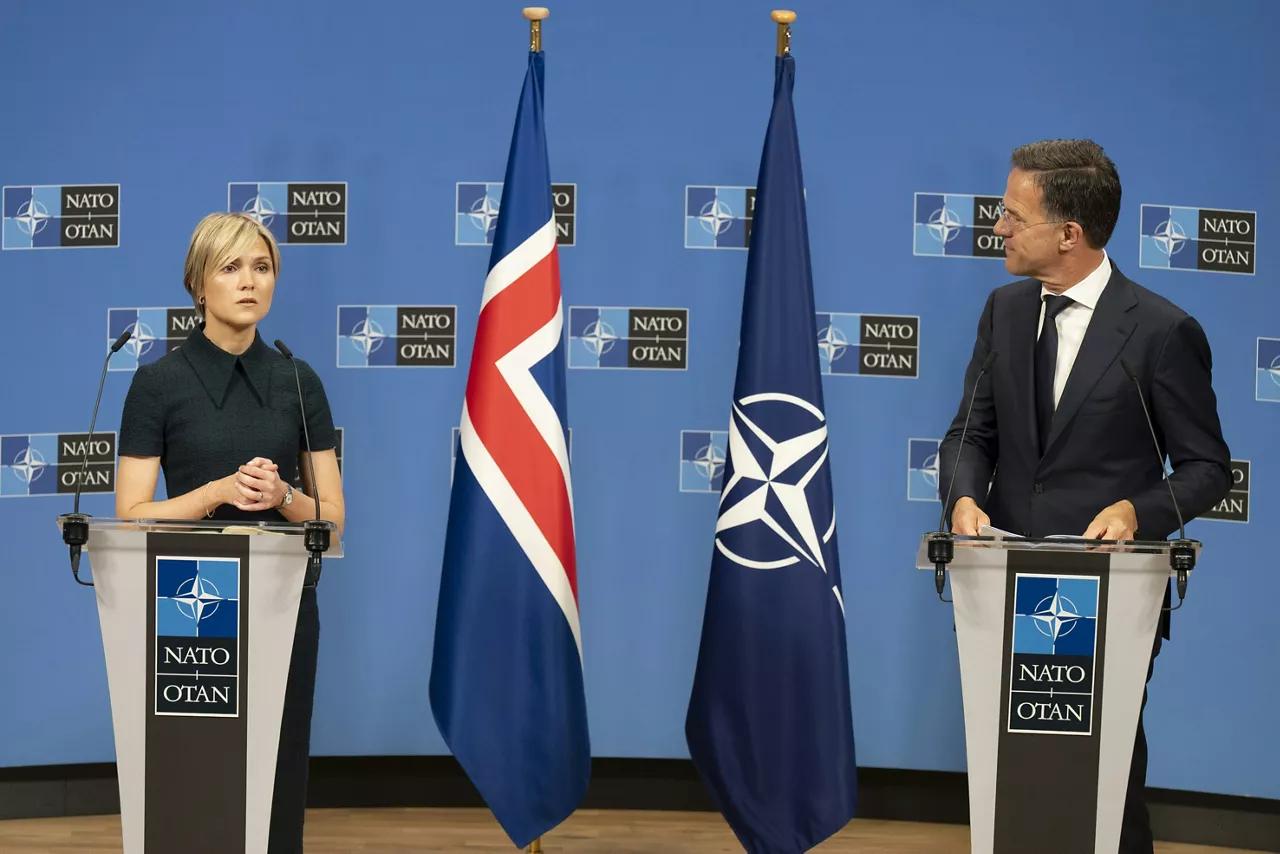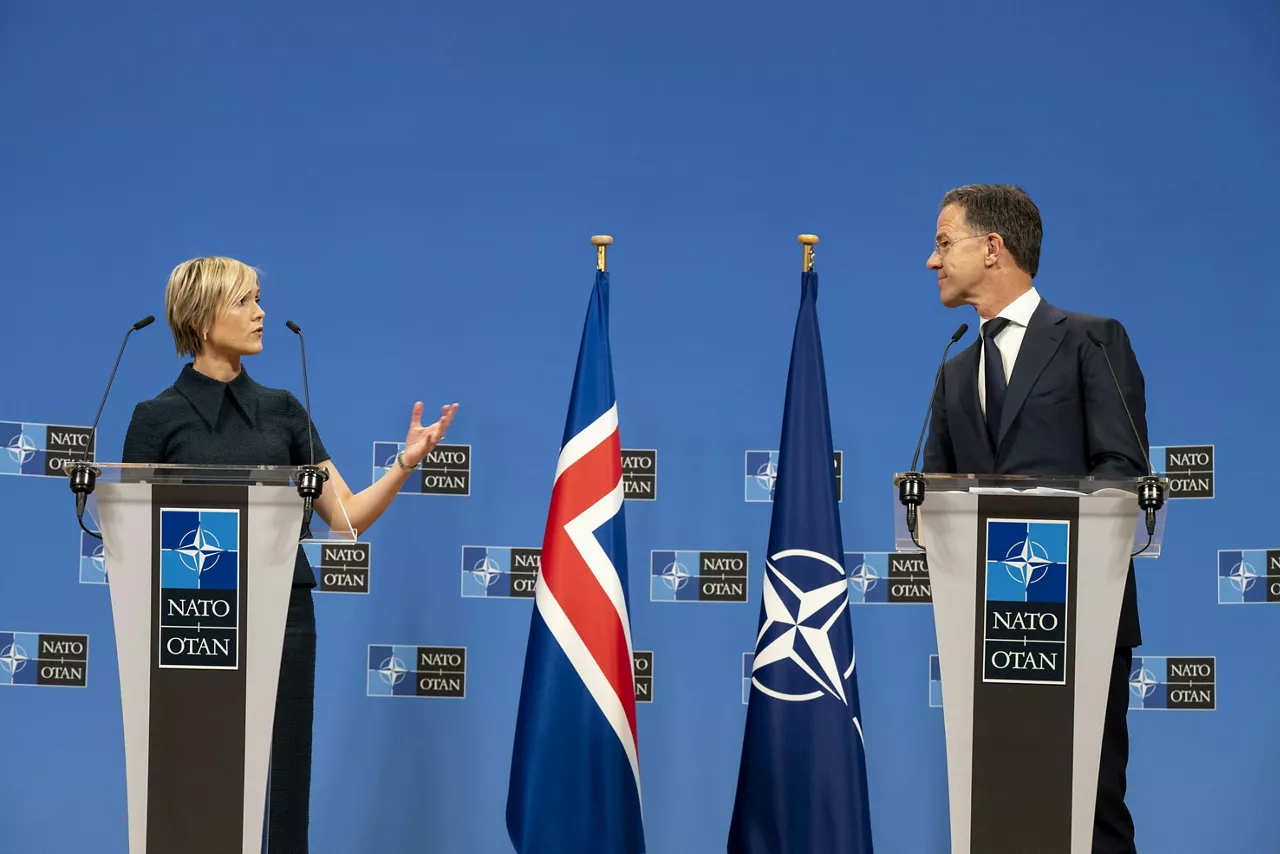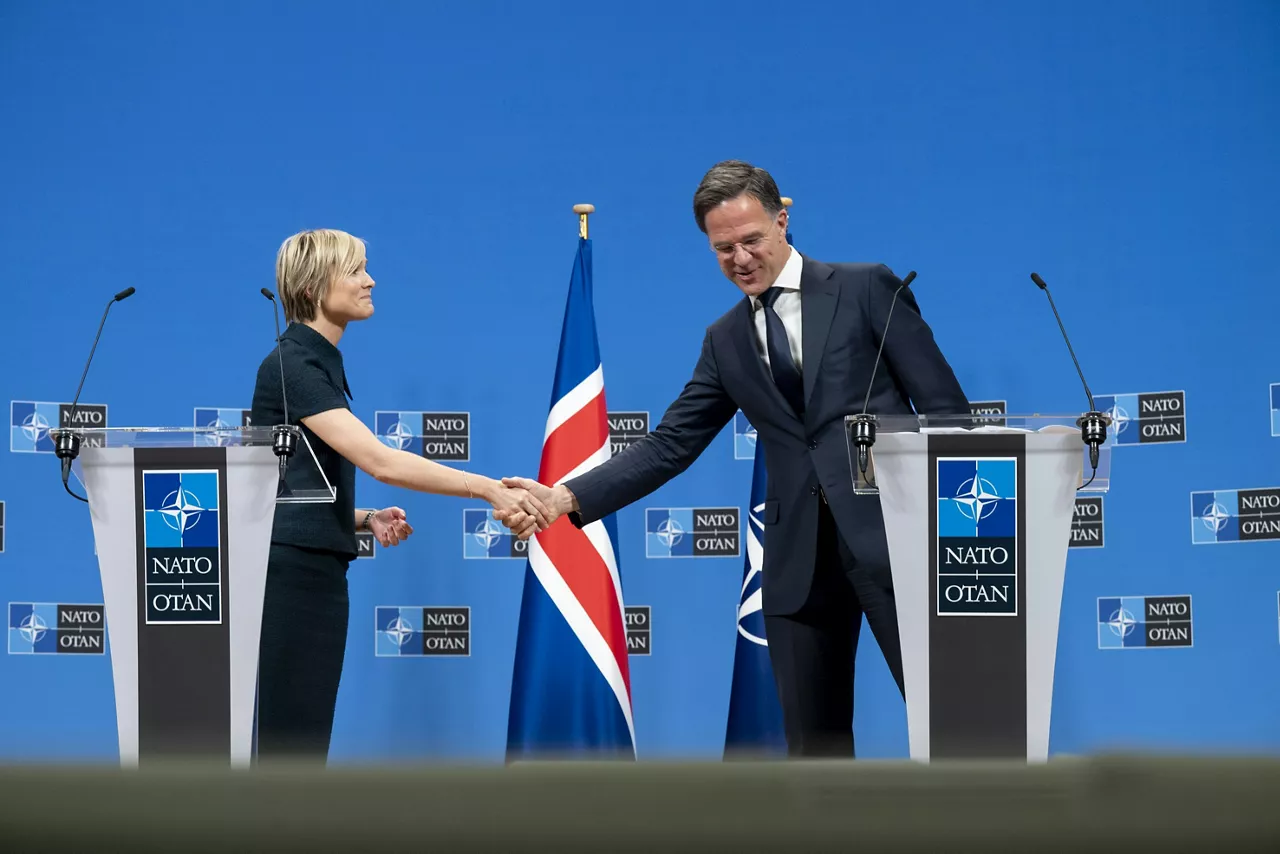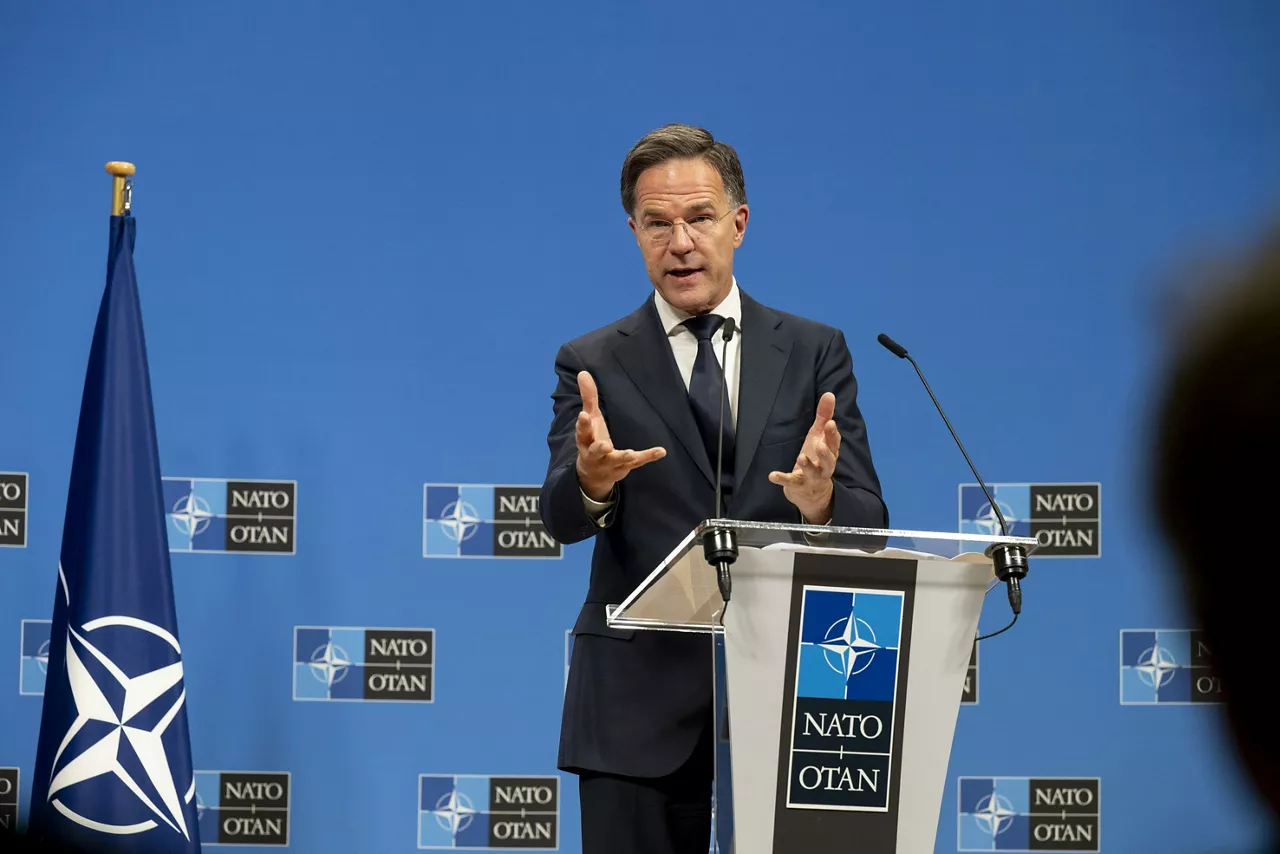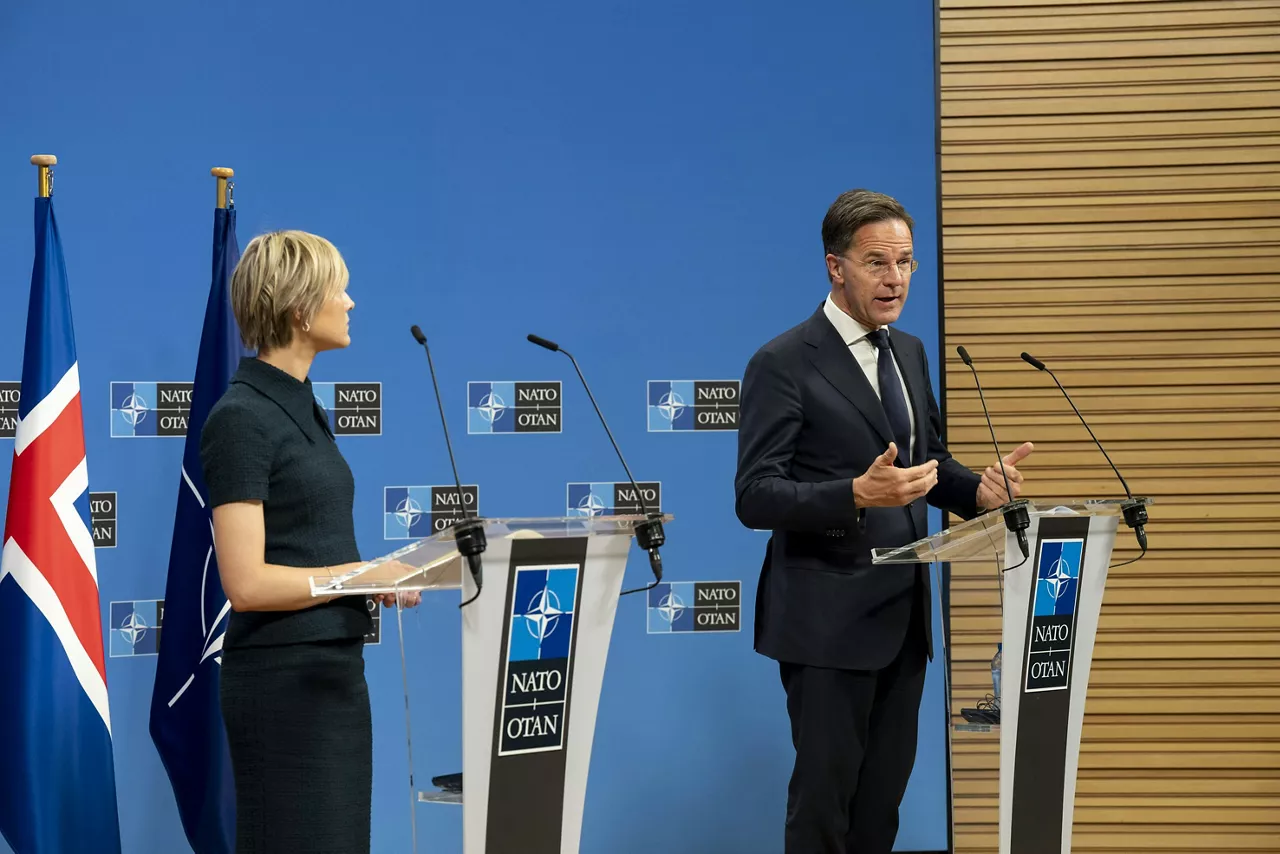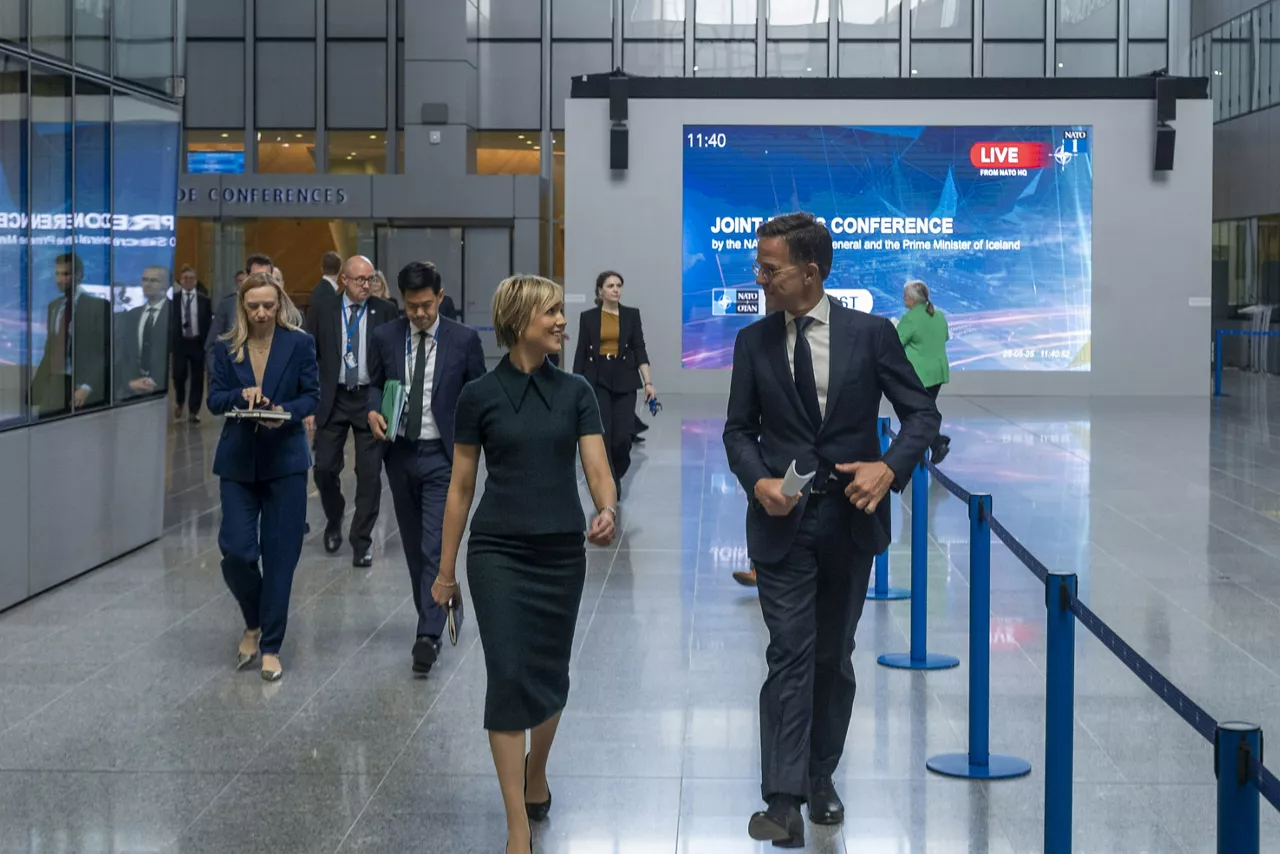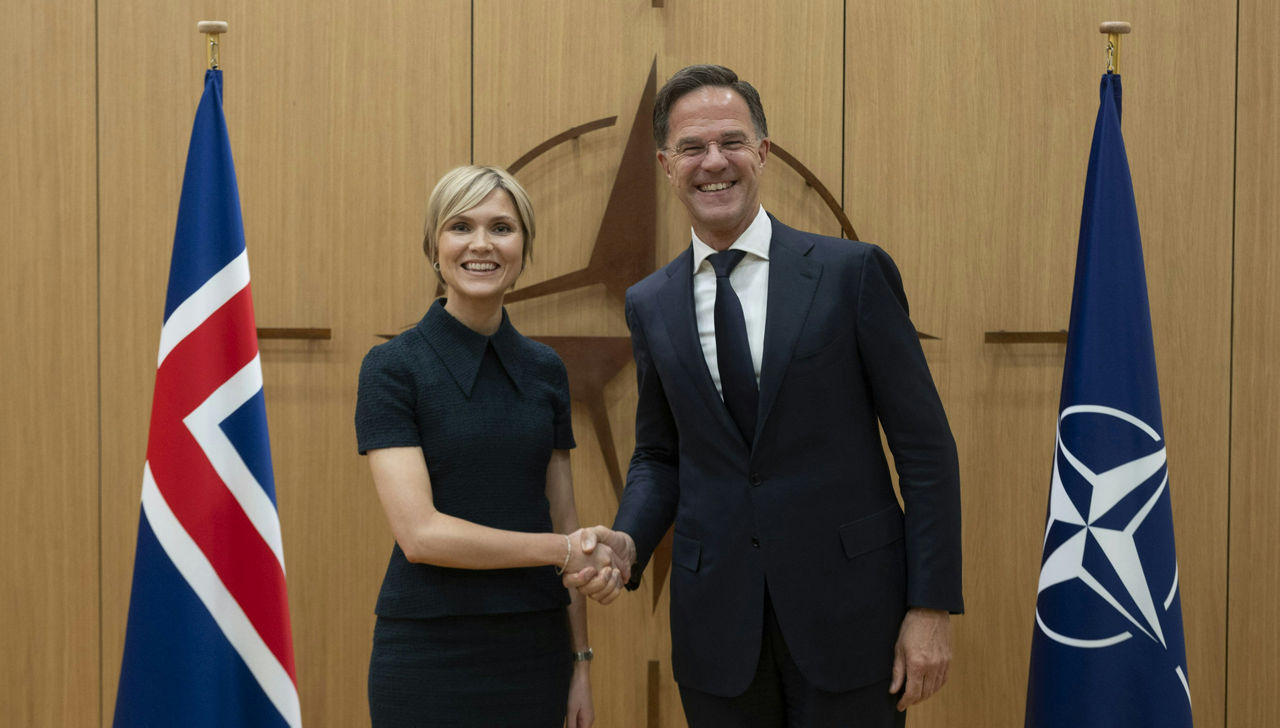Download NATO’s broadcast-quality video content free of charge

Log in
NATO MULTIMEDIA ACCOUNT
Access NATO’s broadcast-quality video content free of charge

Check your inbox and enter verification code
You have successfully created your account
From now on you can download videos from our website
Subscribe to our newsletter
If you would also like to subscribe to the newsletter and receive our latest updates, click on the button below.
Enter the email address you registered with and we will send you a code to reset your password.
Didn't receive a code? Send new Code
The password must be at least 12 characters long, no spaces, include upper/lowercase letters, numbers and symbols.
Your password has been updated
Click the button to return to the page you were on and log in with your new password.
(As delivered)
Prime Minister Frostadóttir, dear Kristrún,
Welcome to this building, to NATO Headquarters. It is really a pleasure to see you.
Iceland is one of NATO´s twelve founding members. And for 76 years now, you have helped protect our peace, our security, and our core values: democracy, freedom, and the rule of law.
Despite not having armed forces, Iceland continues to make important contributions to our shared security.
You operate vital air defence and surveillance systems as part of NATO’s integrated Air and Missile Defence.
You provide host nation support and critical infrastructure for NATO forces – including for our regular air policing missions.
And you regularly host major exercises, such as Dynamic Mongoose – NATO’s premier anti-submarine warfare exercise.
I want to commend Iceland’s contributions to NATO’s deterrence and defence – not only on the Northern Flank, but also in the Baltic region, where you contribute experts to our Forward Land Forces.
Since 2016, you have significantly increased your defence-related spending, doubled your personnel in NATO structures, and taken important steps to strengthen defence tasks at home.
Iceland plays a unique and essential role in the High North, which is an area of increasing strategic importance.
Your geostrategic location, situational awareness, and operational expertise are vital to our collective understanding of the changing security landscape in the region.
I welcome your government’s timely decision to develop a new security and defence policy. This will further reinforce our resilience and readiness.
Today, the Prime Minister and I discussed preparations for the NATO Summit in The Hague.
This will be an important moment to drive forward NATO’s efforts to become stronger, fairer, and more lethal.
We need to increase investment, strengthen defence industry, and enhance our ability to deter and defend across all domains.
We also discussed Russia’s ongoing war of aggression against Ukraine.
Iceland is a staunch supporter of Ukraine – from training military personnel and supporting demining efforts, to humanitarian support and weapons procurement.
You have provided a mobile field hospital, funded the humanitarian initiative Grain from Ukraine, and recently committed to increase your defence support to Ukraine – with an additional 14.4 million euros.
You also contribute personnel to NATO’s Security Assistance and Training mission in Wiesbaden.
This is making a real difference, and I thank you for your contributions.
Russia remains the most significant and direct threat to our security.
I know that Iceland has a proud tradition as a peaceful nation – and that makes your contributions all the more meaningful.
Because to preserve peace, we need to shift to a wartime mindset.
That’s why I value having a committed Transatlanticist like you, dear Kristrún, at the helm.
Your leadership sends a strong signal of commitment – and it strengthens our Alliance.
Dear Kristrún – thank you again for your visit, and for Iceland’s enduring commitment to our Alliance.
The floor is yours.
Allison Hart, Acting NATO Spokesperson
Alright, and now we have time for some questions. We'll start here, gentleman with the beard.
Björn Malmquist, RÚV (Icelandic National Broadcasting Service)
Thank you. Björn Malmquist from Icelandic National Broadcasting Service. Secretary General, you have embraced the notion of Allies spending 5% of GDP on security and defence, with 3.5 going towards direct military spending and 1.5 towards related things such as security related infrastructure, Iceland has obviously not been included when, when you know, when there's talk of military spending, obviously, because we have no military, but how do you see Iceland responding to the call for other investments, the 1.5% of GDP? And Prime Minister, does Iceland have plans in this regards to increase spending according to these proposals that will surely be discussed at the Summit in Hague next month?
Mark Rutte, NATO Secretary General
What I'm clearly hearing from Iceland, and also in my meetings today, is the willingness to increase defence related spending. So within the context you rightly described of Iceland's position, there is clearly that willingness to invest more in the defence related spending. And as I said, Iceland plays a very important role when it comes to our collective deterrence and defence. Because all the stuff Iceland is doing, I'm not going to repeat what I said in my introductory remarks, but it's all there. And I think as an Alliance, we highly value Iceland's contribution. And when it comes to the High North, the Arctic, of course, Iceland is one of the seven NATO Allies in the in the High North, in the Arctic. The only other one is Russia. So eight countries, seven of them in NATO and Iceland playing an increasingly important role also there.
Kristrún Frostadóttir, Prime Minister of Iceland
Yes, I mean, we've had these discussions in the government. There's not going to be a structural shift as to how we spend our money. It makes more sense for us to continue to strengthen what we're already good at, which is defence related investment and spending, being a good Ally when it comes to providing facilities for other NATO countries. We do, we do want to step up. There is willingness within the government to do that. We are looking at the one and a half percent, as you mentioned, when it comes to that type of investment. But we have also been seeing funds going into direct defence related spending, and that will be increasing, but our biggest feat is going to be on the on the related spending and related investment. We have been running an air defence system. We are supporting air policing. Like Mark said, when it comes to the Arctic, this is a place where we have to step up. This is our area. We need to have skin in the game when it comes to the Arctic and have an opinion on that, not that just being run by others. So I see a lot of possibilities coming out of that as well. Even though we're in a situation where this is also run a bit from a threat position, there's still possibilities for build-up in Iceland as well. So this is something we're looking into. We will have concrete points going into the Hague Summit, and then also going forward in our spending reviews.
Allison Hart, Acting NATO Spokesperson
Okay, yes sir.
Anders Borringbo, NRK (Norwegian National Broadcasting Service)
Good morning, Anders Borringbo in Norwegian Broadcasting. You have been discussing the High North and Arctic. So my question goes on Greenland. So, Secretary General, what's your view on Donald Trump wishing to take over Greenland?
Mark Rutte, NATO Secretary General
Well, I was visiting Norway, as you know, last Thursday, on the invitations of Prime Minister and Defence Minister, Foreign Minister. We had a wonderful day, but also a very, it was also very illustrative for me to understand better the whole situation in the Arctic. And what you see now is that these seven countries, this is including the US and Canada, and, of course, Iceland and Norway and Finland and Sweden and Denmark, so Greenland, they're all working more and more collectively together. And they have asked collectively for NATO to get gradually more involved, for example, when it comes to getting ourselves organized, when it comes to, for example, intelligence gathering, etc. So, I think that's very positive. And what President Trump has said about the Arctic, also, in general, the issue of Russia and China becoming more and more involved there, building up their defence systems, the fact that the sea lanes are opening up now. The point he made about, a very practical point he made about icebreakers. We do not have enough icebreaker capacity within NATO, potentially, so we have to look into that. So, for NATO, we're getting more involved. The seven countries really working together, having asked NATO to, yeah, be also a sort of platform of gathering and coming together, etc. So, I think that's very positive.
Kristrún Frostadóttir, Prime Minister of Iceland
Can I just comment real quickly on this? I mean, aside from the obvious point which you have to respect international law, and international law also you have to abide by it in the High North as well. And this is a conversation that us that live in the north need to tell people about, there are rules and laws in the High North as well. I do think with that discussion, or with this focus that came from the US President, there is a focus now on security in the High North and security in the Arctic. And it has made us all think, because nations in the Arctic have wanted to keep this as a low-tension area. And, you know, in a perfect world, it would continue to be a low-tension area. But we need to do more on security. We are aware of that. That has to do with Denmark. It has to do with Greenland directly. It has to do with Iceland, has to do with Canada, and that's why we're increasingly having more dialogue, conversations about what more we can do. So, we're also stepping up as a result. And so, there is a silver lining in all this discussion, even though the message from Iceland is obviously clear, respect international law. The future of Greenland is with Greenlanders. This has put more focus on security in the north, and that is a positive thing as well.

